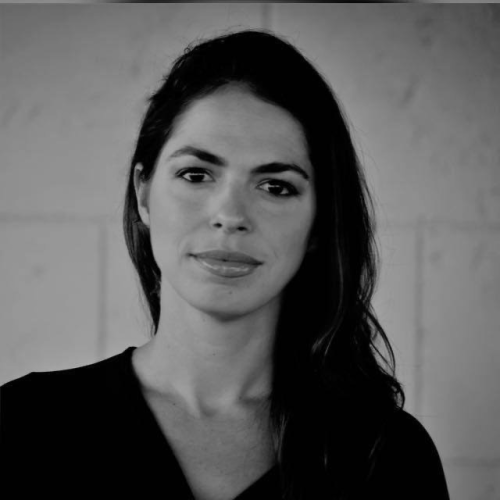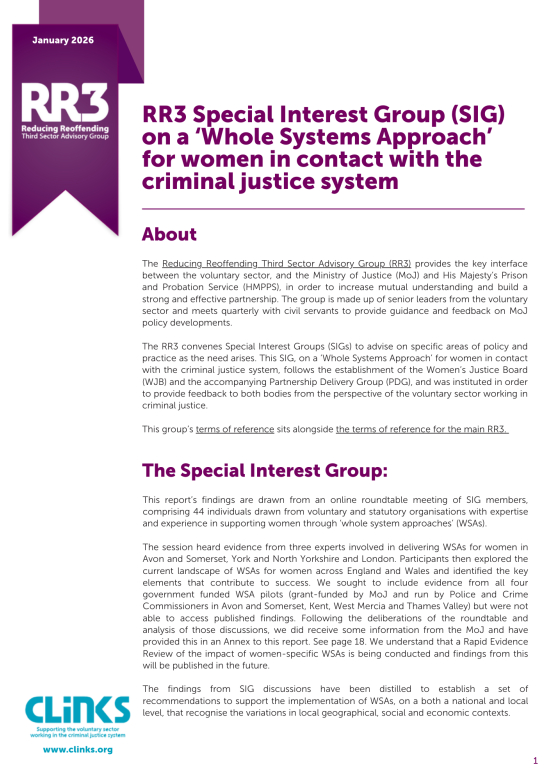This is the first in a series of blogs about Clinks’ work with the Making Every Adult Matter Coalition (@MEAMCoalition). I recently spent a fascinating day at a training course on ‘systems change’, and I took these three key points from the day:
- Tweak the system – you can’t change everything at once, so identify the small systemic changes that will make a big difference
- Agreeing what to focus on is key
- Inspiration matters
MEAM estimates that at any one time 60,000 people are experiencing complex problems and ineffective contact with services; keeping them trapped in a cycle of offending, homelessness, substance misuse and unmet mental health needs.
Clinks is one of four members of the MEAM Coalition, which is supporting eleven local areas to address this problem. These areas are aiming to co-ordinate existing services better and make them more flexible so that they don’t exclude people, and ultimately to change the way services are organised and delivered so that people do not fall through the gaps so badly in the future. We are helping areas to implement the ‘MEAM Approach’, based on learning from three pilots.
As you can see, the programme is very ambitious, and one of the challenges we face in supporting these areas is balancing practical, manageable actions with longer term ‘systems change’. That’s what the training was about, and it was facilitated by Matt Gott from the Innovation Unit.
What is a ‘systems approach’?
The day explored how to go about a ‘systems approach’. The idea is to look at complex situations in a holistic way that recognises that things are not straightforwardly predictable or mechanistic. We started by drawing maps of the systems (pictured right) affecting people with multiple and complex needs. In the centre we put an individual, and then worked outwards mapping out the people and agencies they are in contact with, and the wider institutions, frameworks and policy drivers that affect them. In the centre we might start with family, friends, fellow inmates (if in prison), dealers, pimps and clients, then go on to workers from frontline services, including doctors, police officers, key workers, and hostel staff. Outside that comes organisations/institutions such as day centres, social services, mental health services, prisons and courts. On the outside of the circle are commissioners and decision makers such as Police and Crime Commissioners, councillors, government departments, and the wider political and cultural climate including spending cuts, scapegoating of benefit ‘scroungers’ and the tension between punishment and rehabilitation in criminal justice policy.
Next we discussed how to move from understanding how complex (and often dysfunctional) the system is, to identifying what can be done to address problems with it. It is easy to feel overwhelmed when thinking about the complex and intractable problems with the way services are delivered and how often they fail to help people with multiple and complex needs. The nature of the MEAM Approach is to focus on the people who are worst served by the current services. It’s right that we do this, but we need to find a way to identify the solutions that will make a difference, rather than just describing how complicated the problem is!
We came away with practical steps we could take to help local areas grapple with these difficult issues. The key things I took away from the day were:
1. Tweak the system: You don’t have to overhaul the whole ‘system’ at once. Focus instead on tweaking it – identify the key small changes that will make the biggest impact. Here are some examples of ways of changing the system that came up on the day:
- All agencies in a local area agree to a maximum waiting time for accessing a service (this is contrasted with each agency individually trying to reduce their waiting times but not making a collective commitment).
- Commissioners require service providers to undertake an annual 360 degree appraisal of the service,including feedback from service users.
- Providers and commissioners agree together to relax the exclusion criteria on services (for example so that mental health services or hostels can accept people taking drugs, etc).
2. Agreeing what to focus on is key: We had a particularly useful discussion about how a local area could go about identifying which key changes they need to prioritise locally. One of the MEAM areas had carried out a survey of local agencies which asked them to rank the reasons why some people are excluded from local services. This provides a list of priorities to focus on, but we agreed that the next step they needed to take was to ask experts by experience (service users and ex-service users) what they felt needed to change. After this, the project would need to agree a small number of changes to prioritise and get all partners to commit to.
3. Inspiration matters: Because we are dealing with such complex and entrenched problems, it is vital to focus on the positives. I realised that as well as looking at the whole system and how it doesn’t work, we need to look at how parts of it do work well too. There are lots of ways of co-ordinating services that are already being used to great effect, such as Integrated Offender Management, Youth Offending Teams and Safeguarding Boards. In addition, from an individual perspective there will always be examples of services for people with multiple and complex needs that do make a real impact – we need to learn from these and build on them (see for example a range of case studies on Clinks website). Of course we also need to learn from people who have faced multiple problems with drugs or alcohol, offending and mental illness and come out the other side, and learn what helped.
I would be interested to hear your thoughts on how to go about systems change in the Criminal Justice System.
- Are there key changes or ‘tweaks’ that you are working to put in place that would make a big difference to outcomes for offenders?
- How do you address multi-agency partnership work around people with multiple and complex needs?
- Have you got examples of good practice that could inspire others?
What's new
Blogs
Dr Summer Alston-Smith appointed as new CEO of Clinks
Publications
RR3 Special Interest Group (SIG) on a ‘Whole Systems Approach’ for women in contact with the criminal justice system
The RR3 SIG drives a Whole Systems Ap
Latest on X
The role is for a leader from an organisation focused on racially minoritised people, with expertise in service delivery, policy, advocacy, or related areas in criminal justice. Racial disparities are present at every CJS stage. This role ensures these voices are central in shaping policy to help address and eradicate them. Apply by Mon 18 Nov, 10am. More info: https://www.clinks.org/voluntary-community-sector/vacancies/15566 #CriminalJustice #RR3 #RacialEquity

